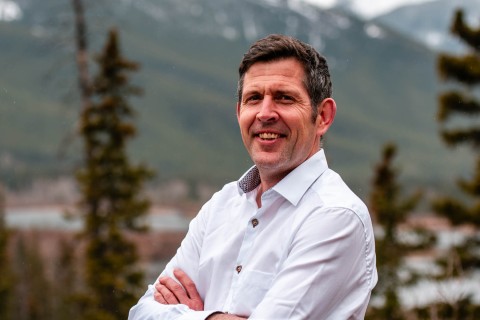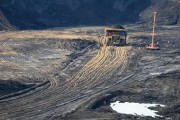We've recently heard from our colleagues in the environmental community that the province may be gearing up finally to release a wetland policy. The Alberta government had originally committed to put a new wetland policy in place by the summer of 2009, so it is long overdue.
The environmental community is watching this issue closely. We want to ensure that there is no net loss of wetlands in the province and that the new policy applies to the entire province of Alberta with no special concessions for any particular type of development.
It's no secret that wetland ecosystems play a critical role in water filtration, groundwater recharge and supporting thousands of species. But how does this specific policy relate to the oilsands?
Alberta has regulated wetland development in the settled portion of the province for many years. If you drain or destroy a wetland here, you are required to "offset" those impacts by preserving or conserving three times as much wetland habitat elsewhere. It is not a perfect approach, but it has contributed to conservation actions that help mitigate some of Alberta's wetland loss.
Unfortunately, the forested portions of Alberta have no such policy - and oilsands companies have taken advantage of this loophole. There is currently no requirement to compensate for the loss of peatlands in northern Alberta, which cannot be reclaimed by current oilsands reclamation techniques.
Why does this matter? Oilsands mining is projected to disturb about 4,800 square kilometres — an area the size of the cities of Edmonton, Calgary, Montreal, Vancouver and Ottawa combined — about half of which is wetland habitats such as fens, peatlands and bogs.
So why does Alberta still not have a provincial wetland policy?
In 2005 the Government of Alberta asked the Alberta Water Council to develop a wetland protection policy that would apply to the whole province. They did, but it took three years.
Meanwhile of course, as is generally the rule in Alberta, it is business as usual before environmental rules are complete, with no protection of wetlands. (For comparison, wetlands on federal land are protected by a "no net loss" policy).
The Alberta Water Council recommendation was a positive piece of work. It recommended maintaining Alberta's wetland area and benefits, and applying an "Avoid-Minimize-Compensate" framework to all development proposals affecting wetlands. The results of broad consultations with Albertans also showed strong support for the need to maintain Alberta's wetland area and function.
The oilsands sector fully participated in the process of arriving at these recommendations, which, like all multi-sector processes, included concessions to gain broad sectoral support. Yet, when it came time for final approval of the Council's recommendations to forward to the Government of Alberta, the oilsands industry, through its representatives the Canadian Association of Petroleum Producers and the Alberta Chamber of Resources submitted letters of non-consensus.
What happened next? The policy recommendation disappeared into the bureaucracy, plagued by further delay. Meanwhile, wetland loss continues across Alberta — particularly in the oilsands.
A provincial wetland policy is another great opportunity for the Government of Alberta to move beyond the rhetoric about environmental performance and implement a long overdue policy that will demonstrate a commitment to hold the oilsands industry to the highest standards of environmental management and mitigation.
Will the policy follow the balanced recommendations supported by Albertans and virtually all stakeholders in Alberta, or will it be watered down by the lobbying of a single sector that balks at environmental protection costs calculated as being mere cents per barrel of bitumen production? We'll be watching to ensure the oilsands developers are held to the same standards for the protection of our precious wetlands as other industries and landowners in Alberta, and that the principles of no net loss to Alberta's wetlands remain. Stay tuned!









